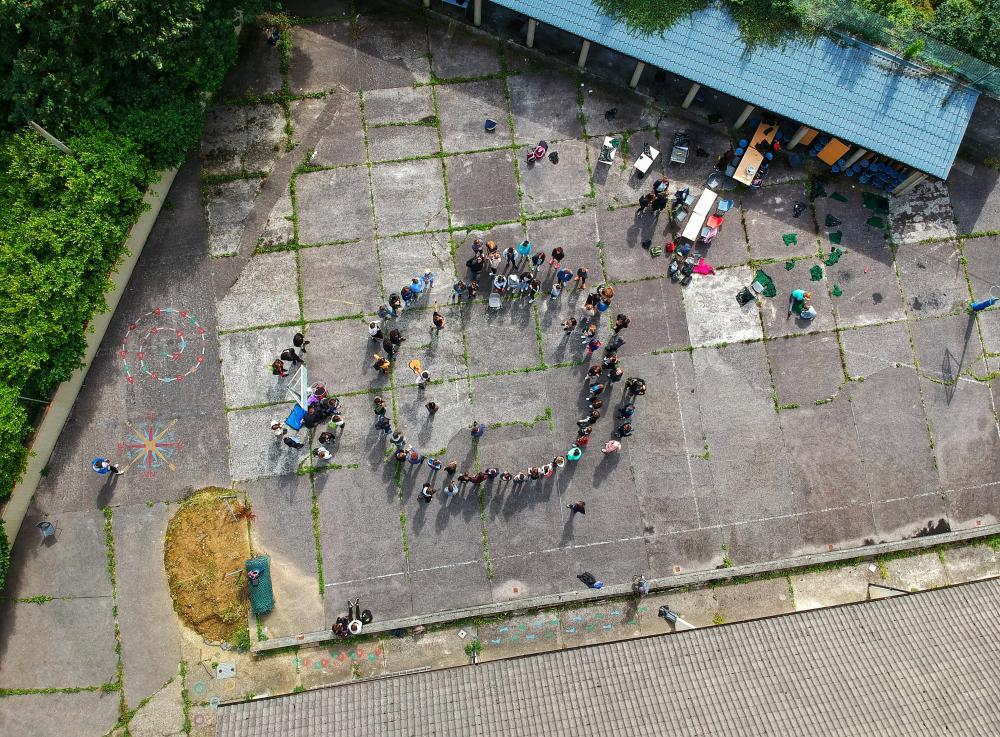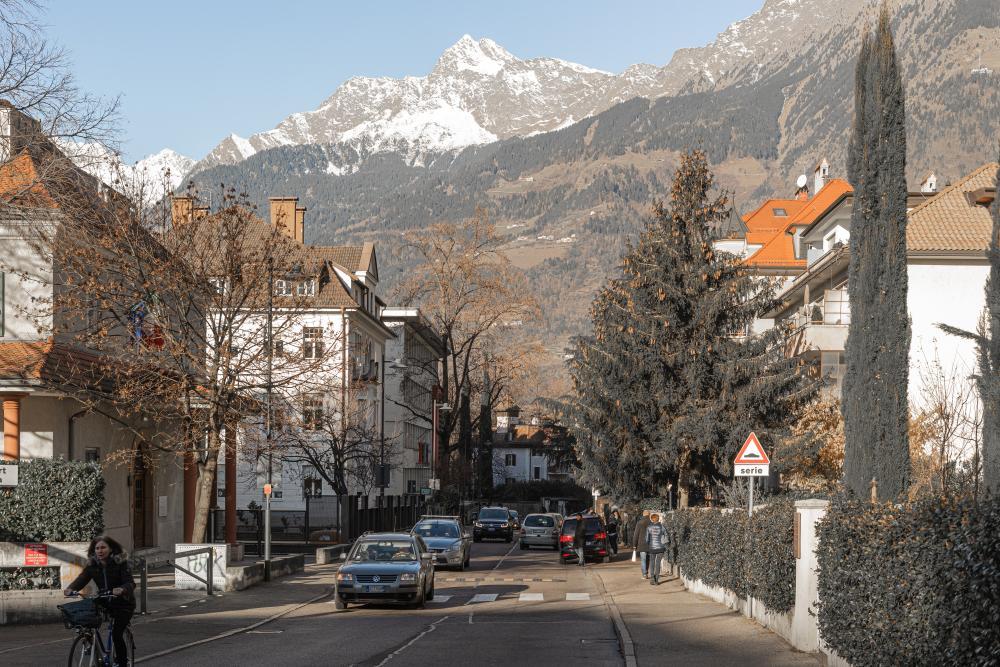
La versione italiana di questo articolo è disponibile qui.
The Italian version of this articles is available here.

La versione italiana di questo articolo è disponibile qui.
The Italian version of this articles is available here.
Restorative Justice in Communities is the title of the project that the Centre for Restorative Justice of the Autonomous Region Trentino-Alto Adige/Südtirol has proposed from 2020 to 2022. Financed by "Cassa delle Ammende", it involved a number of Local Authorities in the Trentino-Alto Adige/Südtirol Region in its implementation, including the Burgraviato District Community and specifically the Social District of Merano.
The first objective was to build a steering committee made up of organisations, services and associations to detect potential or existing conflicts in the area and to plan and implement concrete actions. Despite the Sars-Covid 19 pandemic, when the network was activated, the Merano local community immediately responded with great interest, leading to the realisation of a series of actions that we present below.
The first action was to make a ‘Social Mediation Desk’ available to the population, accessible to citizens who reported their conflicts with neighbours, and to neighbourhood committees who asked to deal with certain conflicts related to city parks. In these cases, the tool chosen to address the conflict and try to transform it was the ‘peace circle.’

The principles of restorative justice — consensuality, confidentiality, non-judgmental listening — allowed people to meet in an atmosphere that facilitated understanding and the proposal of solutions that were as shared as possible.
A specific working group reflected on conflict among young people, which sometimes results in them dropping out of school, and a specific school, the ‘C. Ritz’ provincial professional Hotellerie School, accepted the challenge of trying to become a ‘restorative school.’
In order to start raising awareness among teachers, the event ‘Towards a Restorative School’ was held on 25th October 2021.
On 15th November 2021, as the project’s closing event, an open conference, which was well attended, dedicated to the topic of restorative justice as a tool for community well-being was also held in Merano. The conference made it possible not only to start a reflection on the theoretical and methodological approach and the tools of restorative justice and to share its cornerstones, but also to make it possible to compare the experiences, outcomes and prospects of the actions undertaken.
The pilot project ended in January 2022, but given the interest and the recognition of restorative justice as an important tool for dealing with conflict, the collaboration between the Social District of Merano, the Municipality of Merano and the Centre for Restorative Justice of the Autonomous Region of Trentino-Alto Adige/Südtirol continued and is still continuing.
As of today, the Social Mediation Desk is active, the reflection on the playground was begun, deepened and supported, and another one opened on a second city playground. The request by the ‘C. Ritz’ professional Hotellerie School to become a ‘restorative school’ was implemented by forming a group of teachers and students to open a school conflict mediation desk. And finally, it was decided to reopen a discussion with the Merano representatives of the Institute for Social Building in order to address the issue of conflict in social housing and neighbourhoods most at risk of developing tensions and conflicts.

What was the social impact on the city?
In the Merano experience, conflict management mediated by a restorative justice approach stimulated social environments and regenerated communication and relationship flows. The goal of resolving the conflict or problem could not always be achieved, but the path of rapprochement, respect and inclusion nevertheless took place.
The concrete application of the circle as an instrument of mediation between citizens with different positions has allowed openness to dialogue, recognition and overcoming of prejudices, authentic listening, understanding of other points of view and awareness of individual responsibilities in the path of conflict analysis and resolution.
The restorative justice approach, the actions undertaken and the mediation interventions have stimulated, in the various local communities involved, a relational approach between citizens aimed more at inclusion than exclusion, at consideration and acceptance of the other’s being and thinking, which has made it possible to enhance the localities and their inhabitants and to reactivate a sense of sharing, solidarity and empathy.
You took part as active and interested people in the project’s three community circles. How would you describe your experience?
Restorative justice has been proposed on various occasions in the city of Merano, through circles with the people. The preparation for the meeting by the facilitators of all participants produced a climate of trust and genuine listening.
Being involved in these moments was interesting because it allowed us to focus attention in a shared space on a chosen topic and to feel, even personally, outside of our institutional role, part of the community. We were surprised to see how strongly an attempt was made to find a solution to a social problem. It seems to us that what has happened is that the handling of the problem, in a shared and reasoned manner, has fostered a creativity, perhaps not previously imagined, with respect to solutions. Being understood, welcomed, listened to reveals an unexpected willingness and develops a renewed sense of community.
The project gave rise to the idea of trying to make Merano a ‘restorative city.’ What does this vision represent for you and how do you concretely imagine it?
In recent years, the city of Merano has on the one hand suffered from loneliness and on the other tried to revitalise the dialogue between citizens, creating opportunities for discussion, mostly with political representatives. The dynamic created often generated frustration on both sides. Local authorities, schools, public services often received personal or individual requests with pleas to find ad hoc solutions. But solutions could hardly be found this way, as they could create discontent elsewhere.
So why not break out of this dynamic and create shared spaces, in which all participating actors, according to their possibilities, search for and propose shared solutions?
The social services of the Merano district have grasped the need for change and, thanks to the proposals of the Restorative Justice Centre, social mediation and negotiation skills, they have been more able to open up to the local area, fostering the development of city circles.
This is the ‘Merano — restorative city’ that we imagine: a place where people meet and, in a climate of respect and trust, intercultural and intergenerational, work together to overcome obstacles and difficulties and regain an active role in their community. What we would like to build is a city that is alive, open, sensitive, able to rise up in solidarity and that is not afraid of conflict, but approaches it as a useful resource.
Are you curious and would like to know more about this project? Watch this short film (in Italian and German) just published by the Centre for Restorative Justice of the Autonomous Region Trentino-Alto Adige/Südtirol! Thank you so much for inspiring us!
Antonella Valer and Katja Holzner are restorative justice facilitators at the Centre for Restorative Justice of the Autonomous Region Trentino-Alto Adige/Südtirol.
Contact: giustiziariparativa@regione.taa.it
Published on 20 December 2022.